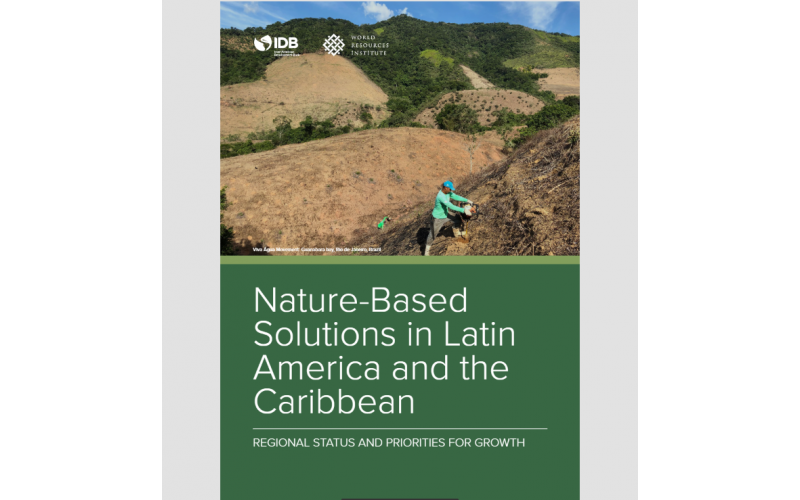As the world recovers from the global recession and pandemic, investment in development proj- ects and infrastructure is poised to surge (World Bank 2020) . But channeling that investment into traditional infrastructure, often built with concrete and steel, risks accelerating greenhouse gas emissions, climate change, environmental degradation, and biodiversity loss. This means that many proposed carbon-intensive recovery investments are more likely to deepen inequality and undermine future economic growth (OECD 2021).
To help chart a pathway forward, this issue brief examines the status of NbS efforts and results in the region to shed light on obstacles to progress and ways to overcome them. It is the first regional review of NbS projects, their status, and implications for investment. The review examines key sectors (i.e., water and sanitation, housing and urban develop- ment, energy, and transportation) and investment objectives (improved water quality and supply, flood risk mitigation, and landslide risk and erosion). It presents the current baseline of NbS adoption in LAC, drawing on a dataset of 156 projects identified in 2020. Sources include publicly available information, email correspondence, and semistructured interviews over several months. This study’s scope is limited and surely more, perhaps many more, NbS projects in LAC are not captured. The intended audience includes a broad range of stakeholders key to advancing NbS, among them national and subnational governments, infra- structure service providers, donors, development banks, other financial institutions, and civil soci- ety . It explores and explains why and where to invest in NbS, and how to set enabling conditions for scaling.

